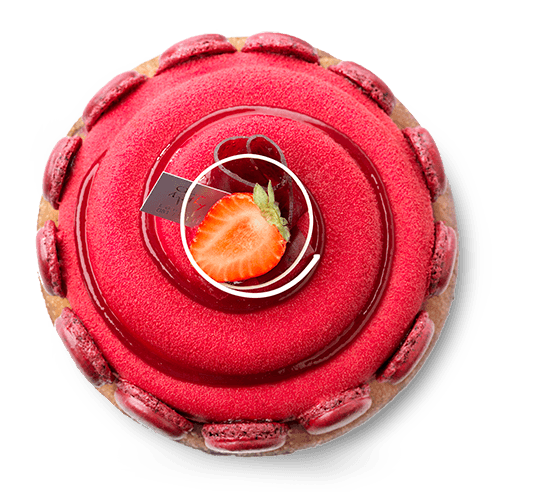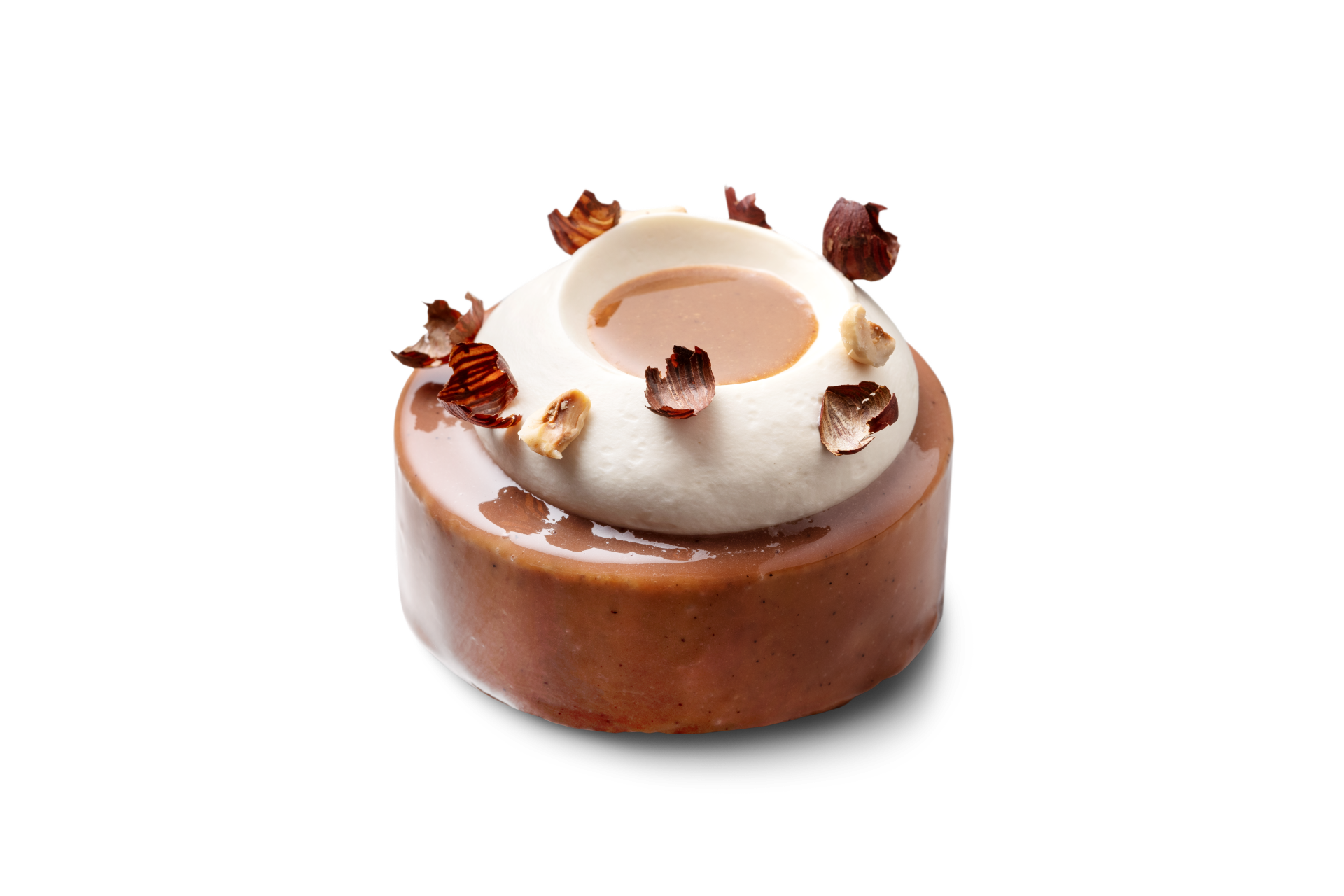“You can't run that many businesses by being a cowboy.”
Colourful C.Group manages a wide range of Limburg catering businesses in Belgium.
The C.Group may well be the most versatile hospitality group in Limburg. With its own Academy and 15 different catering businesses, their offering extends over different levels: from catering to coffee, from bistro to bar and from hospital to hotel. However, the internal focus is not only on this colourful range of businesses. Staff are another major focus within the group. ‘We don't call ourselves the C.family for nothing.’
It all started in 1987 with a hotel-restaurant in Hasselt: The Century. Dimitri Beckers, current owner of the C.Group, ran this business together with his mother Lutgarde Ballet. ‘When the smoking ban in restaurants and bars came into force in 2008, we opened the C.bar next to The Century, as a place where people could smoke a cigarette after dinner or come for a drink after work. In 2008 we added the HasHotel – with Bar Bouffe at Jessa Hospital in the partnership – and after that, we received several other requests to run the cafeterias at other hospitals. That's how the ball got rolling, more requests to manage businesses in all kinds of sectors kept coming in,’ says Saskia Beckers, sister of owner Dimitri and manager of HasHotel. ‘From then on, we kept growing and we now have 15 catering businesses, each with a completely unique identity. I don't think many people in Belgium know exactly which businesses are part of the C.Group: that's how diverse they are.’
HasHotel in Hasselt has been part of the C.Group since 2008. ‘We immediately and thoroughly renovated the premises, because Dimitri thinks the catering part is super important,’ explains Saskia. ‘In Belgium, it is not really customary to eat at a hotel restaurant when you are not staying there. But we specifically wanted to attract passers-by as well. We've made it much more open and transparent and built a nice terrace. Some guests don't even realise that this is also a hotel and only know it as restaurant Bragoût.’ The restaurants Bragoût, TrentaNove and Het Cordaat are among C.Group's most refined restaurants, according to Saskia. ‘The quality of the food is of a high standard and the setting is also very attractive. In Het Cordaat, we built a glass conservatory, where people sit on a raised platform overlooking the kitchen. During the day, this is a meeting place for business lunches and dinners; in the evening, it is more privately frequented.’ The C.Group management does not aspire to earn a Michelin star for any of its restaurants. ‘Michelin is not going to pay us,’ says Peter Vlietinck, who once started as a chef at Het Cordaat and is now responsible for purchasing and managing all the chefs within C.Group. ‘We work for our guests. For us, the most important thing is that they are satisfied. Quality must be guaranteed, but it must also remain affordable at the same time.’
Dimitri Beckers takes care not to turn C.Group into a single formula, even though that would probably be much more efficient and probably also more profitable. ‘Dimitri is allergic to uniformity or franchising’, laughs Peter. ‘However, we do look into things that we can do together. In all our busines ses, fish and meat comes in cut and portioned packaged. Some chefs find this annoying, but they are not always there and so they do not always cut everything personally anyway. A deviation of twenty grams is about a loss of 20 kilos on an annual basis: just make the calculation.
Certain soups, stews and basic sauces such as bolognese, pepper sauce and mushroom cream sauce are also made centrally at Corda. Cuisine. They are sealed and have a shelf life of three weeks, but are often used within days. This is efficient: at Corda. Cuisine, they make 100 kilos of stew and 200 kilos of bolognese sauce a week. The sauces in Bragoût, on the other hand, are often made on the spot, or the chefs give it their own touch. Dimitri is more than happy with this creativity. He thinks it will be difficult for an average brasserie to survive in the future. That's why he looks for diversity and creativity. ‘If you eat at one of our restaurants today and at another tomorrow, the menus should be different. Some businesses are concepts, like Bar Bouffe, the brasseries in several Limburg hospitals. For these we do have identical menus and a similar concept at all sites. However, this is not in principle the C.Group approach.’
'‘Everyone works for the group and people are free to switch between businesses.'‘
Even though the 15 C.Group catering businesses differ in many things, some aspects strongly connect them. Regardless, owner Dimitri Beckers puts his stamp on the interpretation of his restaurants, bars, bistros and hotels. ‘He has a specific house style, works with the same architects and knows how he wants the kitchen to be furnished,’ says Ruben Vanoirbeek, manager of the C.Academy, C.Group's training centre. ‘Besides, we train all our people at the C.Academy. This is where we offer training for our new permanent staff and teach them what the house rules are. What to wear? What about smoking? What about toilet breaks? All these things are clearly explained to new staff. We also show that we are a hospitality group with a wide variety of catering businesses.
Everyone works for the group and people are free to switch between businesses. This allows people to adapt their work to their personal circumstances, for instance because they have young children and don't want to work late. We work in a two-day on, two-day off system, which allows us to stay open seven days a week while still giving everyone one weekend off a month. The work-life balance is great for everyone this way.
All our businesses are open seven days a week, except on Christmas Eve, which is a family occasion. At the C.Academy, we also handle recruitment and selection through social media channels, for example. We screen people who are interested in a job in the hospitality industry to see which business is the best match and which tasks they like best. This makes sure they end up in the right place much faster, which makes them more confident. Their tasks have been explained, they arrive at a place that suits them and get a supervisor at the workplace. Of course, we teach them beforehand how to walk with plates, serve a beer and how to explain a menu. This increases the job satisfaction once they are on the floor and the chances of them staying. By training new people internally, they do not feel lost in the workplace, but instead experience a strong sense of belonging to a group. Knowing ‘how things are done here’ gives them self-confidence and shows them what the C.Group DNA is about right from the start. And the great thing, of course, is that with so many different companies in the group, they will always find a place where they feel they belong. We can give everyone who comes in a perspective for the future and room to grow.’
With the support of the C.Academy, Ruben has introduced so-called growth interviews within the hospitality group. ‘In my previous job in the corporate world, I actually hated performance appraisals. However, I did realise that it can be valuable for an employee to spar with the management and say what they like and don't like. In case of struggles, this often helps bring back a healthy work environment. Employees are relieved to be able to share what is on their minds every now and then. The fact that we make time for this and pay attention to them is invaluable for the whole company. Dimitri tries to speak to many people himself, but we now have 340 permanent employees and by the summer we will have grown to 600 staff. That's why I also conduct many of those interviews myself.’
C.Group always has plans in the pipeline, in abundance. The e-Arena is opening in early 2025: a state-of-the-art event venue with a 400-square-metre LED wall at the Corda site in Hasselt. Peter: ‘We can welcome four to five thousand standing and one thousand five hundred seated guests there. And we will take care of all the catering. It will be super high tech, the top of Europe.’ Dimitri doesn't like standing still. The hospitality industry has been instilled in him and he has an eye for innovations. ‘He always keeps investing in his business,’ says his sister Saskia.
‘It's unthinkable that nothing would happen in a particular business for four years. There will always be something to paint or redecorate. Many entrepreneurs squeeze everything out of a new and trendy concept until there really isn't a drop left. Dimitri doesn't let this happen to his businesses: he keeps innovating.’ He involves his employees in all the changes. ‘Many of the managers in our business behave as if it were their own,’ Peter knows. ‘If something goes wrong, it really keeps them awake at night. Those are the people you need. Dimitri is also very open to those in charge. They get to hear every day what the turnover was and how many hours they worked, so they can see the turnover per hour. It means they start sending people home on a quiet day, letting people start later and working more efficiently. By sharing the turnover figures it becomes clear that Dimitri trusts you, while making you co-responsible. This is how everyone stays focused. And so we have grown individually, but certainly also as C.Group. It's not by being a cowboy that you can run so many businesses.’
Find out how they use Debic products in their creations.

Discover the art of natural colouring. Use this technique in a natural way and with lots of flavour, so that your decoration adds something to your dishes.
Read more






